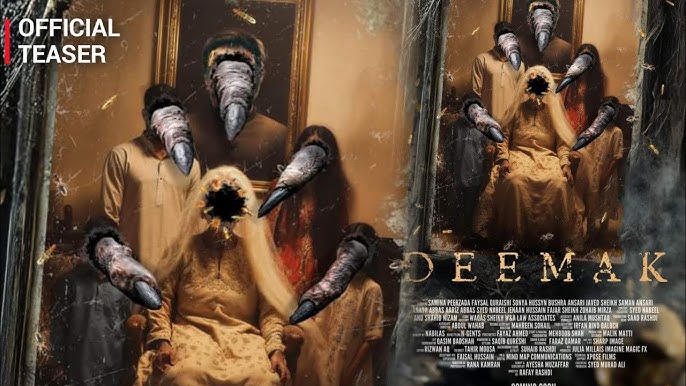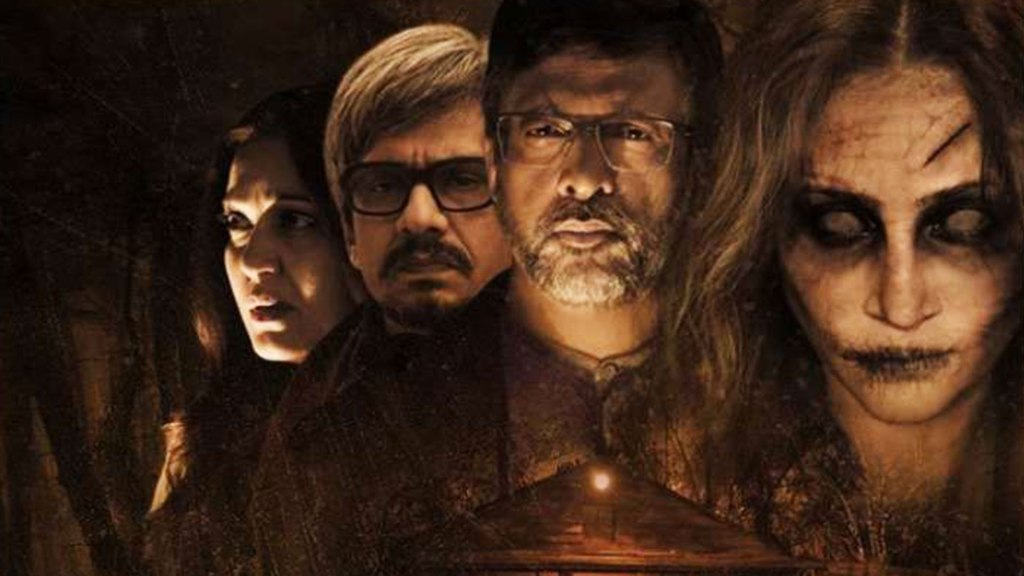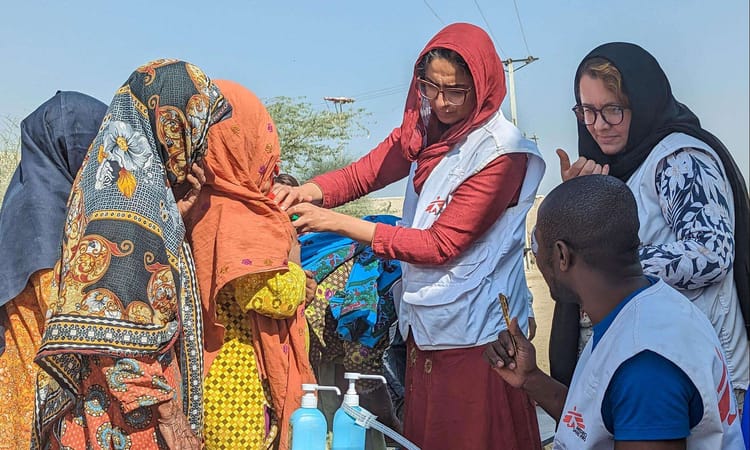Jinn-Z : Evolving Beliefs in Gen Z & Gen Alpha

‘Don’t stand under trees at sundown, the jinns live there and will get to you; don’t go into empty houses, jinns live there and don’t want to be disturbed; there is a pichal peri (reverse footed witch) on that road will run after you if you cross her.’’
For those of us living in the subcontinent, these are common stories we’ve heard growing up. The supernatural has long been a cornerstone of cultural identity in the Indian Subcontinent, deeply rooted in folklore, religious beliefs, and modern media. For Gen Z (born 1997–2012) and Gen Alpha (born after 2012), perceptions of the supernatural are shifting, influenced by technological advances, exposure to global cultures, and evolving societal norms.
Traditionally, the supernatural in the subcontinent has been a blend of mythology, folklore, and religious narratives. Stories of jinns, chudails (female spirits), and nagas (serpent deities) have been passed down through generations, embodying fear, morality, and cultural identity. These entities often served as cautionary figures or explanations for unexplainable events.
For the younger generations, these tales exist in a complex space, balancing inherited cultural reverence with scientific skepticism. Young people often approach supernatural stories as cultural artifacts rather than literal truths, viewing them through both an emotional and analytical lens.

Media plays a pivotal role in shaping how younger generations perceive the supernatural. Indian television shows like Ssshhhh...Koi Hai and Naagin and Pakistani dramas such as Belapur Ki Dayan have modernized traditional ghost stories, making them both entertaining and educational.
Simultaneously, streaming platforms like Netflix and Amazon Prime expose people to Western supernatural narratives, such as Stranger Things and The Haunting of Hill House. These global influences blend with local stories to create a hybrid understanding of the supernatural, where regional folklore coexists with international horror tropes.
Technology is reshaping how young people interact with supernatural themes. Social media platforms like TikTok and YouTube have become arenas for sharing paranormal experiences, urban legends, and conspiracy theories. Hashtags like #HauntedStories and #ParanormalActivity reveal a mix of curiosity and skepticism among users.
Interactive tools like augmented reality (AR) and ghost-hunting apps have also brought a modern dimension to supernatural exploration. These technologies allow younger generations to experience traditional ghost stories in new, immersive ways, bridging the gap between past and present.
Gen Z and Gen Alpha, often described as highly educated and tech-savvy, approach the supernatural with a critical eye. Many phenomena once attributed to the supernatural—like sleep paralysis or hallucinations—are now understood through scientific explanations. This shift fosters a growing trend of skepticism among young people.
However, belief in the supernatural has not entirely vanished. Surveys suggest that personal experiences, cultural traditions, and a fascination with the unknown still drive interest in supernatural entities. Many interpret these beliefs symbolically, as metaphors for broader societal or psychological issues.
A move away from organized religion toward individualized spirituality is another trend shaping supernatural perceptions. Younger generations often blend traditional beliefs with modern practices like meditation, astrology, or tarot readings.
For example, karma—rooted in Hindu and Buddhist traditions—resonates with Gen Z as a way to explain justice or life balance. This fusion of spiritual exploration and cultural tradition reflects the evolving relationship younger generations have with the mystical.

The internet has revitalized traditional urban legends. Tales like the Bhoot Bungla (ghost bungalow) or the Monkey Man of Delhi have found a new audience on platforms like Reddit, where users share regional variations of these stories.
Horror content creators from India and Pakistan on platforms like YouTube have also gained popularity. These creators combine investigative storytelling with cultural myths, making supernatural exploration an engaging and entertaining experience for young audiences.
Supernatural beliefs in the subcontinent have historically been used to explain psychological conditions, such as attributing schizophrenia to possession or depression to evil spirits. With greater awareness of mental health, Gen Z and Gen Alpha are more likely to challenge such interpretations.
Nonetheless, the supernatural is sometimes recontextualized as a cultural lens through which trauma or mental health struggles are processed. This nuanced perspective allows for empathy while encouraging critical thinking.
For many families, supernatural beliefs serve as both a point of connection and contention between generations. Grandparents may recount tales of djinns and spirits with reverence, while younger family members might question their validity. These discussions foster a dialogue that bridges traditional and modern perspectives.
This generational dynamic mirrors broader societal changes in the subcontinent, where rapid modernization coexists with deeply rooted traditions.
For Gen Z and Gen Alpha in the Indian Subcontinent, the supernatural is neither fully embraced nor completely dismissed. It occupies a complex space where cultural heritage intersects with modern skepticism, scientific understanding, and global influences.
Whether through media, technology, or personal exploration, younger generations are redefining what the supernatural means in a contemporary context. While it may no longer serve as an explanation for the unknown, the supernatural remains a vital part of cultural storytelling and identity, evolving alongside societal change.
In this reimagined space, the supernatural continues to thrive—not as a source of fear or reverence alone but as a dynamic aspect of tradition, entertainment, and introspection.
Fatima Hassan is a freelance journalist and the co-founder & Multimedia Editor of Echoes Media, dedicated to crafting impactful stories that resonate with diverse audiences. A journalism graduate of Northwestern University, Fatima combines analytical rigor with creative storytelling to explore complex issues and amplify unheard voices.






Member discussion